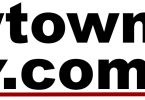By Emily Leayman | From Watchdog.org
Keeping taxes and fees from rising in 2017 isn’t a New Year’s resolution for officials in the Keystone State.
Democratic Gov. Tom Wolf announced that he will not seek sales or income tax increases in next year’s budget. But even without further hikes, Pennsylvania taxpayers will be shelling out more on other taxes and fees. Here are five facing Pennsylvanians in the new year.
1. Gas tax: Being the most expensive is not enough for Pennsylvania. The state already claims the highest gas tax in the nation (50 cents per gallon), but the tax will increase again to 58 cents in January. With the 18.4-cent federal excise tax, that brings the total to 76.4 cents. The increases are part of the Act 89 Pennsylvania Department of Transportation package former Gov. Tom Corbett signed in 2013. Before the legislation, the gas tax was 31 cents. The tax could raise $299 million in revenue, paying for highway and bridge projects.
2. Turnpike tolls: The gas tax isn’t the only thing taking a bigger bite out of drivers’ wallets. Pennsylvania Turnpike tolls will rise by 6 percent on Jan. 8. For cash-paying travelers going across the state, tolls from Pittsburgh to Valley Forge will increase $2 to $34.90. The agency attributed the increase to rising pension costs, debt service, renovation projects, and a mandated $450 million payment to PennDOT. Debt payments make up $600 million of the agency’s $980 million budget. This is the ninth consecutive year the Pennsylvania Turnpike Commission approved an increase.
3. Obamacare premiums and penalties: The ironically titled Affordable Care Act will become even less affordable for Pennsylvanians in 2017. Premiums for individual insurance plans will increase by an average of 33 percent and small group plans by an average of 7 percent. These prices apply to those buying plans on the federally run online marketplace, which accounts for 10 percent of Pennsylvania’s market. Those without insurance will owe a penalty of $695 or 2.5 percent of their 2016 tax year income, whichever is greater, an increase from 2 percent in 2015. Uninsured children also invoke a $347.50 penalty.
4. Pension contributions: The board overseeing the Public School Employees’ Retirement System voted to increase school districts’ pension contributions from 30.03 percent to 32.57 percent for next year. PSERS blamed the 8.5 percent hike on flat investment returns. This increase is more than school districts had anticipated, as PSERS previously requested a 32.04 percent contribution. School districts have pointed to skyrocketing pension costs as a driver of rising property taxes. PSERS projects that school district contributions will rise to 36 percent over the next four years. Local taxpayers would not see potential property tax increases until the new fiscal year on July 1, 2017, but they should brace for an impact as school districts take on a larger burden.
5. E-cigarette tax: Businesses selling alternatives to cigarettes still had to pay a sin tax as Pennsylvania’s Tobacco Products Act went into full effect on Dec. 30. In July, the legislature passed this tax expansion to the vaping industry in addition to a $1-per-pack cigarette tax hike. Owners began to pay a 40 percent tax on e-cigarettes and the ingredients associated with vaping on Oct. 1. On Dec. 30 business owners were liable for a 40 percent tax on unsold inventory. Advocates continue to protest the tax, and some business owners not able to afford the tax have since closed up shop. More than 70 vaping shops have closed since the bill went into effect Oct. 1, according to the Pittsburgh Post-Gazette. For those shops still open, expect the tax to continue passing onto consumers through higher prices.









